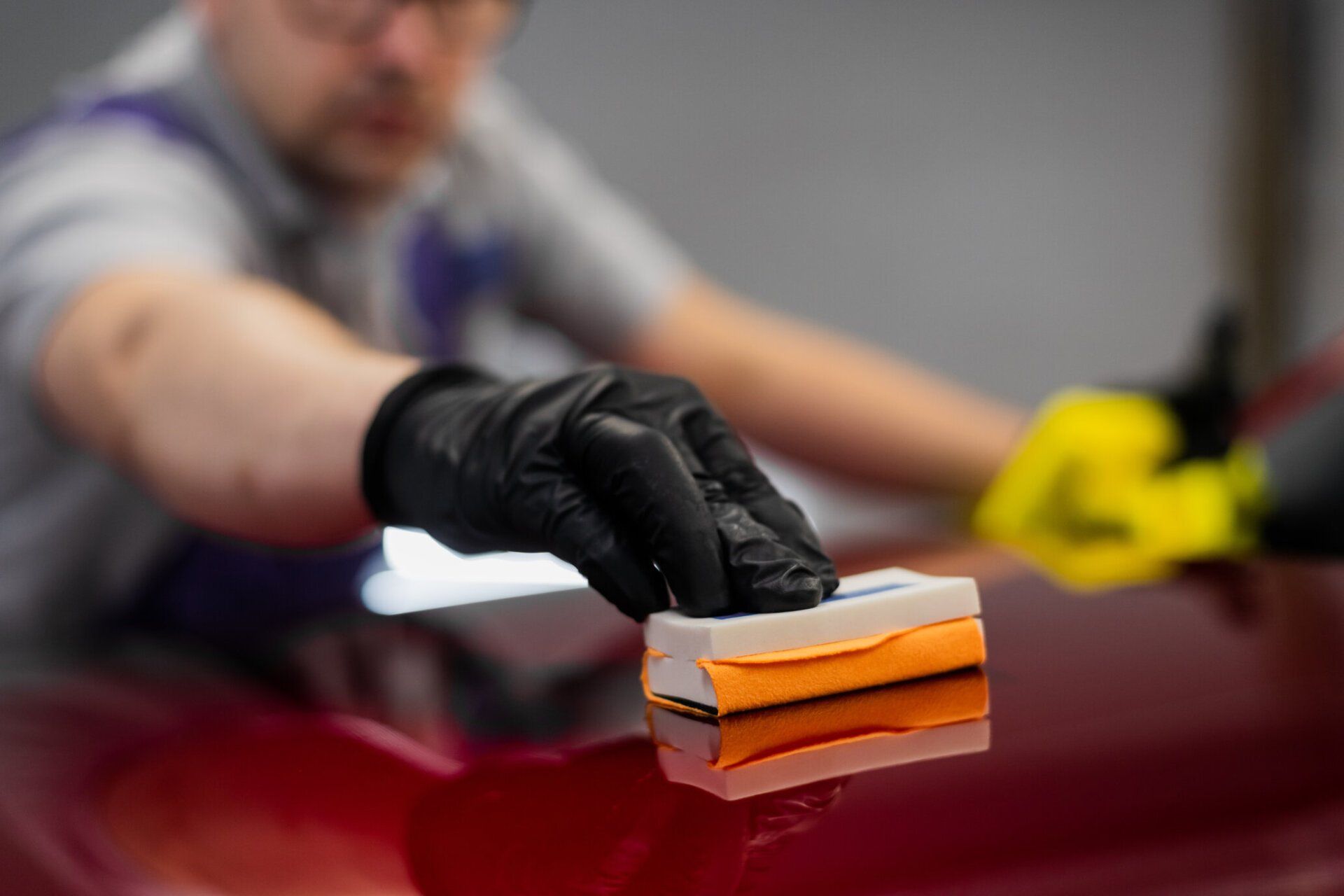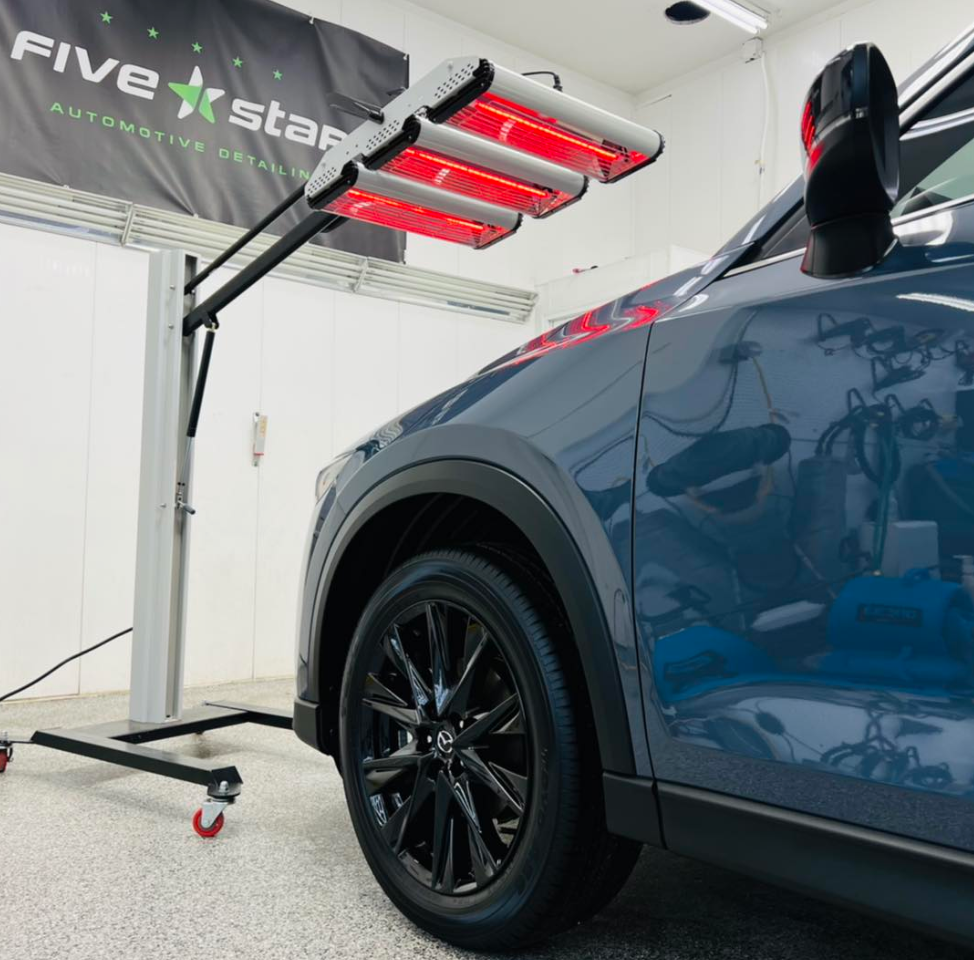Imagine driving down the road and turning heads with a car that shines like it's brand new. This isn't just the result of an occasional car wash, but a professional auto detailing service that produces phenomenal results.
These services provide many benefits, including improving your car's appearance and lifespan.
In this article, we will go over five very good reasons why automotive detailing ought to be at the very top of your list of things to do when it comes to maintaining your vehicle.
Importance of Professional Detailing
Professional car detailing services have become increasingly popular among car owners who value the appearance and maintenance of their vehicles. But why is professional detailing so important?
In the end, it helps preserve both the exterior and interior of your car, ensuring it remains in optimal condition for years to come.
Preserving the Car's Exterior and Interior
When it comes to preserving the exterior of your car, professional detailers employ specialized techniques, high-quality products, and extensive knowledge to achieve remarkable results. Beyond regular washing, they remove deep-seated dirt, grime, and stains that erode paint.
By thoroughly cleaning the bodywork, including intricate areas such as wheel arches and door jambs, they help prevent corrosion and maintain the overall integrity of the vehicle.
Think about how long it would take for you to clean up bird poop from your car if you did not do it. If you do not clean up the droppings immediately, the acidic components in them will eat away at the paint. A professional detailer would recognize this risk and remove the droppings without further damage.
In addition to preserving the exterior, professional detailing also focuses on maintaining the interior of your car.
This includes deep cleaning of carpets and upholstery to remove stains and odors, treating leather to prevent cracking and fading, and restoring other cabin materials. By investing in these comprehensive interior cleaning processes, you not only create a more enjoyable driving experience but also enhance the overall value of your vehicle.
Every day, whether commuting to work or taking road trips with loved ones, we spend a great deal of time inside our cars.
Therefore, why not keep it tidy and in good repair?
Advantages of Professional Car Care
When it comes to maintaining the overall appearance and value of your car, professional car care and detailing services offer several significant advantages.
Here are five key benefits that you should know:
- Enhanced Appearance: Professional detailers use specialized techniques and high-quality products to achieve remarkable results. They can remove deep-seated dirt, grime, and stains, restoring your car's exterior to a like-new condition.
- Protection from Climate Hazards: With proper detailing, a protective layer is created on your car's surface. This helps shield it from harmful ultraviolet (UV) rays, contaminants, bird droppings, and other environmental factors that can lead to paint fading, oxidation, and damage.
- Improved Resale Value: A well-maintained car with a gleaming exterior and pristine interior is much more appealing to potential buyers. Hiring a qualified detailer can increase your car's resale value.
- Comprehensive Interior Cleaning: Professional detailers go beyond just vacuuming and wiping down surfaces. They have the expertise and tools to deep clean carpets and upholstery, remove stubborn stains, deodorize the interior, and restore leather surfaces. This thorough cleaning ensures a fresh and comfortable driving experience.
- Time and Effort Savings: Car detailing can be a time-consuming task that requires expertise and specialized tools. By entrusting professionals with this job, you save time and effort while enjoying superior results.
Now that we have covered the benefits of professional auto care, let us zero in on one area that needs extra emphasis: detailing's ability to increase passenger safety.
Safety Enhancements Through Detailing
Professional car detailing not only enhances the aesthetics of your vehicle but also contributes to improved safety on the road.
Here's how:
- Clearer Visibility: During the detailing process, windows are meticulously cleaned both inside and out, ensuring maximum visibility while driving. Removing smudges, streaks, and buildup eliminates potential glare or obstructions that could hinder your ability to see the road.
- Headlight Restoration: Over time, headlights can become foggy or yellowed due to UV exposure and oxidation. As part of a professional detailing service, we restore your headlights so they work better and shine brighter than before. Restored headlights increase discernibility and security on nighttime roadways.
- Protection Against UV Rays: The protective coatings applied during detailing also extend to the interior of your car. These coatings create a barrier against harmful UV rays, reducing the potential for sun damage to your dashboard, seats, and other interior components. This not only prevents fading and cracking but also protects against potential health risks associated with prolonged sun exposure.
- Enhanced Grip and Control: Detailing includes cleaning and conditioning leather surfaces, such as steering wheels and seats. Maintaining these surfaces ensures they remain in optimal condition, preventing them from becoming slippery or worn out over time. By preserving the grip on steering wheels and seats, detailing contributes to improved control while driving.
By investing in professional detailing services, you not only maintain your car's appearance but also prioritize safety on the road.
- According to the International Carwash Association, a well-maintained car can increase its resale value by up to 10%.
- In a survey by Auto Trader, they found that 56% of car buyers would be influenced by a car's appearance and 45% said they'd negotiate the price if the car wasn’t clean.
Automotive Detailing Process: What to Expect
When you entrust your vehicle to a qualified detailing service, you can expect a thorough and meticulous process that goes beyond a regular car wash. While specific procedures may vary depending on the detailing package you choose, there are some common elements to anticipate.
Firstly, the detailing process typically begins with an extensive exterior wash to remove dirt, grime, and debris. This includes washing the wheels, tires, and undercarriage. It may also involve a clay bar treatment to eliminate contaminants from the paint surface. Next comes the stage of paint correction, where any scratches or imperfections are addressed through techniques such as vehicle polishing or buffing.
This process helps restore the paint's shine and clarity while reducing the appearance of swirl marks.
Interior cleaning is another vital aspect of professional detailing. From vacuuming carpets and upholstery to wiping down surfaces and treating leather seats, every nook and cranny is thoroughly attended to. Specialized products are used to remove stains, odors, and bacteria while restoring the interior's original luster.
Additionally, experienced auto detailers often offer services like engine bay cleaning, headlight restoration, and fabric protection treatments. These extra steps add further value by ensuring that every aspect of your vehicle is revitalized and protected.
Overall, the detailing process ensures that your vehicle receives meticulous attention both inside and out, resulting in a restored appearance that goes beyond what conventional cleaning methods can achieve.
Ensuring Quality in Professional Auto Detailing
When seeking professional detailing services for your car, it's essential to prioritize quality to ensure that you receive the best results possible. Here are some key factors to consider when selecting a detailing service:
- Experience and Expertise: Look for established businesses with a track record of providing high-quality detailing services. Experienced detailers have honed their skills over time and possess knowledge of advanced techniques and products.
- Certifications and Training: Check if the detailers have received any certifications or training from reputable organizations in the industry. This can serve as an indication of their commitment to professionalism and ongoing education.
- Customer Reviews & Testimonials: Read reviews or testimonials from past customers to gauge their satisfaction with the detailing service. Positive feedback and recommendations are indicators of a reliable and trustworthy business.
- Professional Facilities and Equipment: Ensure that the detailing service has a clean and well-equipped facility that meets industry standards. The use of professional-grade equipment, tools, and quality products is vital for achieving superior results.
- Personalized Approach & Customization: A reputable detailing service understands that every vehicle is unique. Look for providers who offer personalized services tailored to your specific needs, preferences, and budget.
Remember that quality may come at a higher cost, but it's crucial to prioritize value over price when it comes to protecting your investment.
Opting for a professional detailing service with expertise in handling luxury vehicles will ensure that your car receives the attention it deserves, resulting in exceptional outcomes.
By considering these factors and conducting thorough research, you can ensure that your chosen professional detailing service meets your expectations for quality.
Reach Out to Five Star Automotive Detailing to Give Your Car An Ultimate Makeover
Professional detailing is important for car care due to its ability to restore and maintain the car's exterior and interior, enhancing its appearance and value. It offers benefits such as enhanced appearance, protection against environmental damage, improved resale value, comprehensive interior cleaning, and time and effort savings.
At Five Star Automotive Detailing, our experts utilize specialized techniques, high-quality products, and extensive knowledge to achieve remarkable results, including deep-seated dirt and stain removal and creating a protective layer against
UV rays and contaminants, addressing minor scratches and imperfections, deep cleaning carpets and upholstery, and restoring leather surfaces. Overall, professional detailing ensures optimal care for your car while saving you time and effort. So
contact us for a free estimate or to book an appointment today!






